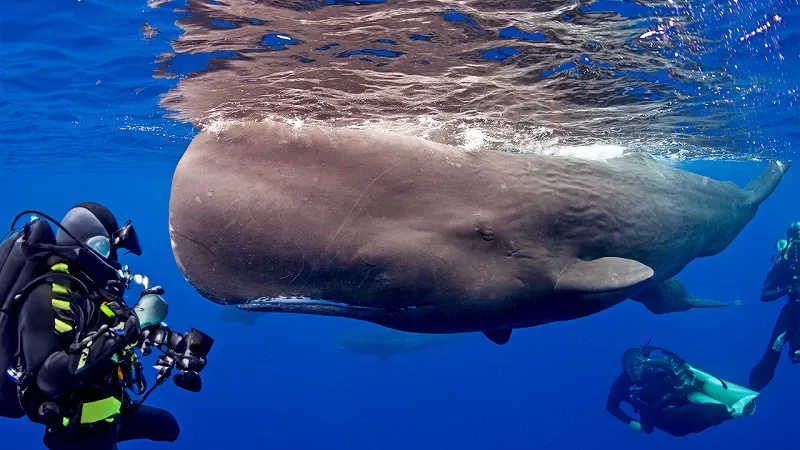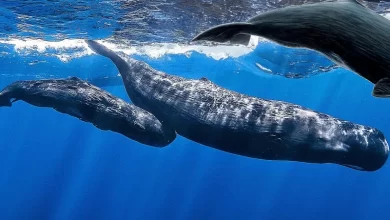Dominica Establishes the World’s First Marine Sanctuary for Sperm Whales to Combat Climate Change

Dominica is set to pioneer the establishment of a marine sanctuary dedicated to protecting the endangered sperm whale, one of the ocean’s most majestic inhabitants.
Covering nearly 300 square miles on the western side of the island, this royal blue expanse will be designated as a sanctuary to safeguard the crucial nursing and feeding grounds for these incredible creatures. Prime Minister Roosevelt Skerrit expressed his government’s commitment to ensuring the safety of these highly intelligent animals, emphasizing the importance of preserving both the ocean’s health and climate.
Scientists anticipate that the sanctuary will not only shield the sperm whales but also play a role in mitigating climate change. Sperm whales, unique in their behavior, release nutrient-rich excrement near the surface, contributing to plankton blooms that capture carbon dioxide from the atmosphere. Shane Gero, a whale biologist and founder of the Dominica Sperm Whale Project, suggests that the sperm whales in Dominica might play a particularly significant role in this ecological process.
The reasons behind the increased defecation in Dominica remain unclear, but Gero speculates it could be due to a higher consumption of squid or other environmental factors. Regardless, the impact of their contribution to combating climate change is noteworthy.
The sperm whale population around Dominica is estimated to be less than 500, with their movement confined to the Lesser Antilles chain. Unlike their counterparts in other regions, these sperm whales exhibit limited migration, making their protection all the more crucial.
Gero emphasizes the matrilineal nature of sperm whale society, where the protection of the species is vital, especially given the low birth rate of female calves. Even a single entanglement can spell disaster for an entire family, and with a reproductive cycle of five to seven years per calf, conservation efforts become paramount.
Historically, sperm whales have faced threats from ship collisions, fishing gear entanglement, and agricultural runoff. The creation of the marine sanctuary aims to address these issues, allowing for sustainable artisanal fishing and implementing shipping lanes to prevent accidental whale deaths.
Following the establishment of the reserve, the Dominican government plans to appoint officers and observers to ensure compliance with regulations, particularly in whale tourism. While visitors will still have the opportunity to witness these magnificent creatures, regulations will be in place to ensure responsible interactions.
The move has garnered praise from the scientific and conservation communities, with experts commending us in Dominica for recognizing the importance of coexisting with these cetacean citizens. Enric Sala, an explorer-in-residence at National Geographic, applauds Dominica for taking a groundbreaking step in caring for its marine inhabitants.
With approximately 35 families of sperm whales spending a significant portion of the year in Dominica’s waters, the sanctuary marks a significant stride toward harmonizing human activities with the natural world. Each whale, named by researchers, contributes to the unique oceanic symphony that Dominica is determined to protect for generations to come.
This article is copyright © 2023 DOM767








